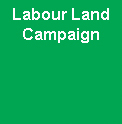
According to George Osborne his budget will ensure the richest will pay five times more tax through a cap on reliefs, taxes on high end property transactions and presumed better behaviour.
All of these revenues are highly variable year to year, unlike the minimum annual sum £10,000 Osborne has gifted to the highest earners by cutting the 50p rate. This is unlikely to be fiscally neutral as he claims.
But in any case, the half a billion Osborne thinks these measures would raise is derisory, and as such, a sign of his clear approval of those economy-wrecking Masters of the Universe in the world of financial services who are mostly keeping their telephone number salaries and pensions, unlike those who serve us in the public sector.
The ONS shows gross property wealth in 2010 amounted to 4.35 trillion. Much of this value is actually land - or location - value. Yet Stamp Duty, Business Rates and Council tax barely touch this and these charges fall disproportionately on the least well off. Properties in the highest banding for Council Tax for example, are charged only three times more those in the lowest.
Property owners and property speculators will always say a silent thank you to taxpayers for the underlying and uplift in the value of the land they own when projects such as Crossrail are announced and then created. Property prices in London and parts of the South can be as much as two thirds land value or even more, as a result.
Eleanor Firman, Chair of the Labour Land Campaign says:
"It is unfair that workers wages are taxed, pensions are taxed, business is taxed, goods and services are taxed but land wealth is not taxed.
"By reforming property taxes and shifting taxes from wages and production onto land and other natural resources (including oil, airwaves and airport landing slots) we could reverse the current economic decline and relieve those unfairly bearing the brunt of austerity.
"The wealth that arises from our collective use of these resources should be reclaimed for investment in our public services. This is far fairer than the current system that lets this unearned income to accrue to those who didn’t create it.
"Applying an Annual Land Value Tax on land and other natural resources, will allow new businesses to be able to afford to set up all over the UK as marginal costs to businesses will be reduced and workers are left with more to spend."
No comments:
Post a Comment